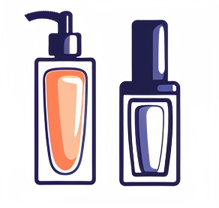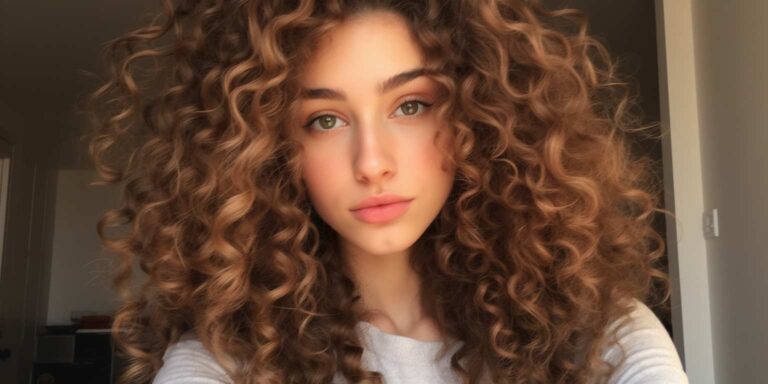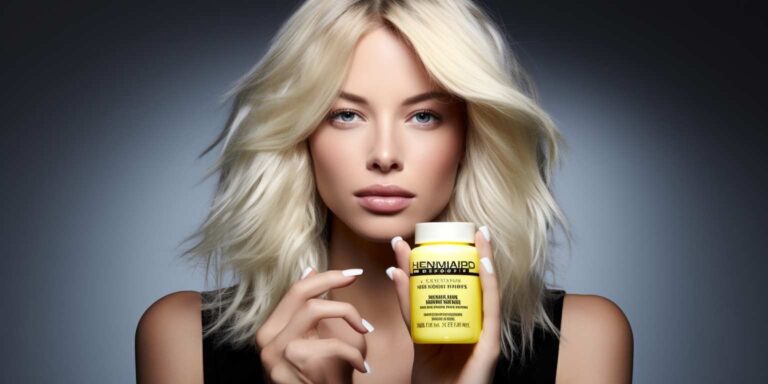Finding the best shampoo for healthy hair
First and foremost, identify your hair type. Is it oily, dry, normal, or a combination? Understanding this fundamental aspect provides the foundation for selecting the ideal shampoo. For those with oily hair, opt for clarifying shampoos that cleanse deeply without stripping essential oils. Conversely, individuals with dry hair benefit from moisturizing formulas enriched with hydrating agents like argan oil or coconut oil.
Ingredients play a pivotal role in determining a shampoo’s efficacy. Look for sulfate-free options to prevent excessive drying and irritation, particularly for those with sensitive scalps. Natural ingredients such as aloe vera, shea butter, and vitamin E nourish and strengthen hair strands, promoting overall health.
Fragrance adds an olfactory dimension to the shampoo experience. However, individuals with sensitive skin or allergies should opt for fragrance-free variants to mitigate adverse reactions. Consider scents derived from essential oils for a soothing and therapeutic effect.
Specialized formulas cater to specific hair concerns. For instance, those grappling with dandruff can benefit from anti-dandruff shampoos containing zinc pyrithione or salicylic acid to alleviate flakiness and itchiness. Similarly, color-treated hair requires gentle formulas designed to preserve vibrancy and prevent fading.
Price is a factor to consider, but it shouldn’t be the sole determinant. Investing in a high-quality shampoo may incur a higher upfront cost, but the long-term benefits outweigh the expense. Moreover, a little goes a long way, as premium shampoos often require smaller amounts per wash, extending their longevity.
The importance of nutrient-rich formulas for hair health
When it comes to maintaining luscious locks, the importance of nutrient-rich formulas cannot be overstated. Your hair, much like your body, thrives on a balanced diet, and providing it with the right nutrients is key to ensuring its health and vitality.
One of the fundamental components of a nutrient-rich hair wash formula is protein. Hair is primarily composed of a protein called keratin, and incorporating protein into your hair care regimen can help strengthen and repair damaged strands. Look for ingredients such as hydrolyzed silk protein or keratin amino acids in your shampoo and conditioner.
Vitamins and minerals also play a crucial role in maintaining healthy hair. Vitamin E, for example, is a powerful antioxidant that promotes blood circulation to the scalp, aiding in hair growth. Meanwhile, vitamins A and C contribute to the production of sebum, the natural oil produced by the scalp that keeps hair moisturized and nourished.
| Nutrient | Function | Sources |
|---|---|---|
| Protein | Strengthens and repairs hair strands | Meat, fish, eggs, dairy, legumes |
| Vitamin E | Promotes blood circulation to the scalp | Almonds, spinach, avocado, sunflower seeds |
| Vitamin A | Supports sebum production | Carrots, sweet potatoes, kale, spinach |
Furthermore, essential fatty acids such as omega-3 and omega-6 are integral to maintaining hair health. These fatty acids help nourish the scalp and prevent dryness, dandruff, and hair loss. Look for ingredients like argan oil or coconut oil in your hair care products to reap the benefits of these nourishing oils.
Lastly, don’t forget the importance of hydration. Just as your body needs water to function properly, your hair requires adequate moisture to stay healthy and vibrant. Opt for formulas that contain humectants like glycerin or hyaluronic acid, which help attract and retain moisture in the hair shaft.
Strengthening your hair with the right shampoo
Strengthening your hair with the right shampoo is not just a matter of vanity; it’s about maintaining the health and vitality of your hair. Whether you’re dealing with damage from heat styling, chemical treatments, or environmental factors, finding the right shampoo for hair repair can make all the difference.
One of the key ingredients to look for in a strengthening shampoo is keratin. This protein is a building block of hair, helping to repair damage and strengthen the hair shaft. Keratin-infused shampoos can help replenish lost protein, leaving hair stronger and more resilient.
Another essential ingredient to consider is biotin. Biotin is a B-vitamin that is crucial for healthy hair growth. It helps to strengthen the hair follicles, reducing breakage and promoting thicker, fuller hair. Look for shampoos containing biotin to give your hair the support it needs to grow strong and healthy.
Argan oil is another powerhouse ingredient when it comes to strengthening shampoos. Rich in vitamins, minerals, and antioxidants, argan oil helps to nourish and hydrate the hair, reducing frizz and preventing damage. Shampoos infused with argan oil can help restore elasticity to brittle hair, making it more resistant to breakage.
Caffeine might be your go-to for a morning pick-me-up, but it can also work wonders for your hair. Caffeine-infused shampoos stimulate the scalp, promoting blood flow and encouraging hair growth. Additionally, caffeine has been shown to block the effects of DHT, a hormone that can contribute to hair loss.
Vitamin E is another essential nutrient for hair health. It is a powerful antioxidant that helps to repair and protect hair follicles from damage. Shampoos enriched with vitamin E can help strengthen the hair shaft, making it less prone to breakage and split ends.
When shopping for a strengthening shampoo, it’s essential to consider your specific hair type and concerns. Whether you have fine, limp hair or thick, curly locks, there’s a shampoo out there tailored to your needs. Look for products that address your unique concerns, whether it’s damage repair, volume enhancement, or scalp care.
How to repair hair damage with nutrient-packed washes
To repair hair damage effectively, incorporating nutrient-packed washes into your hair care routine is essential. These washes, enriched with vitamins, minerals, and proteins, can revitalize your hair from within, restoring its strength, shine, and overall health.
One of the key ingredients to look for in nutrient-packed washes is keratin. Keratin is a protein that makes up the structure of your hair. Daily exposure to environmental stressors and styling tools can deplete your hair’s natural keratin levels, leading to damage and breakage. Keratin-infused washes help replenish this vital protein, strengthening your hair and reducing breakage.
In addition to keratin, biotin is another essential nutrient for hair health. Biotin, also known as vitamin B7, plays a crucial role in the production of keratin and can help promote hair growth and prevent hair thinning. Look for washes that contain biotin to nourish your hair follicles and encourage healthy, luscious locks.
Furthermore, vitamin E is a powerful antioxidant that can protect your hair from free radical damage. Exposure to pollutants and UV rays can weaken your hair, leading to dryness, brittleness, and dullness. Vitamin E-enriched washes help fortify your hair against these external aggressors, keeping it soft, hydrated, and resilient.
When selecting nutrient-packed washes, it’s also essential to consider your specific hair type and concerns. For instance, if you have dry, damaged hair, opt for a wash that contains argan oil. Argan oil is rich in fatty acids and antioxidants, which can deeply hydrate and repair parched strands, leaving your hair silky smooth and manageable.
On the other hand, if you struggle with frizz and flyaways, look for a wash infused with coconut oil. Coconut oil has moisturizing and anti-frizz properties that can tame unruly hair and impart a healthy shine. Additionally, coconut oil helps seal the hair cuticle, preventing moisture loss and enhancing your hair’s natural luster.
The role of vitamins and minerals in hair care
Vitamins and minerals play a crucial role in maintaining healthy hair, contributing to its growth, strength, and overall appearance. Understanding the specific benefits of each nutrient can help in devising an effective hair care regimen.
Vitamin A is essential for cell growth, including hair cells. It helps in the production of sebum, the oily substance that moisturizes the scalp and keeps hair healthy. Deficiency in vitamin A can lead to dry, dull hair and even hair loss.
Vitamin E acts as a powerful antioxidant, protecting hair follicles from damage caused by free radicals. It improves blood circulation in the scalp, promoting hair growth and preventing hair fall.
Vitamin C aids in the production of collagen, a protein crucial for hair strength. It also helps in the absorption of iron, another vital nutrient for healthy hair. Lack of vitamin C can lead to dry, brittle hair that is prone to breakage.
Vitamin D plays a role in hair follicle cycling and hair growth. It helps in the creation of new hair follicles, ensuring a healthy density of hair. Insufficient vitamin D levels have been linked to hair thinning and loss.
Vitamin B-complex, including biotin (B7), niacin (B3), and pantothenic acid (B5), is crucial for overall hair health. Biotin, in particular, is known for promoting hair growth and preventing hair breakage. Niacin improves scalp circulation, while pantothenic acid strengthens hair follicles.
| Mineral | Role in Hair Care |
|---|---|
| Zinc | Supports hair tissue growth and repair. Zinc deficiency can lead to hair loss and scalp conditions. |
| Iron | Essential for the production of hemoglobin, which carries oxygen to hair follicles. Iron deficiency can cause hair thinning and loss. |
| Copper | Facilitates the production of melanin, the pigment that gives hair its color. Copper deficiency can lead to premature graying. |
| Magnesium | Plays a role in protein synthesis, including keratin, the protein that makes up hair. Magnesium deficiency can result in weak, brittle hair. |
Tips for maintaining healthy hair through proper washing
Maintaining healthy hair through proper washing
Proper hair washing is a cornerstone of hair care that can significantly impact the health and appearance of your locks. Here are some tips to ensure your hair washing routine promotes optimal hair health:
Frequency: It’s essential to strike a balance when it comes to how often you wash your hair. Overwashing can strip the hair of its natural oils, leading to dryness and breakage, while underwashing can result in buildup and scalp issues. Generally, aim to wash your hair every 2-3 days, adjusting based on your hair type and lifestyle.
Water temperature: The temperature of the water you use can affect the health of your hair. Hot water can strip the scalp and hair of natural oils, causing dryness and frizz. Instead, opt for lukewarm water for washing your hair. This temperature helps to open the hair cuticles to allow for thorough cleansing without causing damage.
Shampoo selection: Choose a shampoo formulated for your hair type and concerns. Whether you have oily, dry, curly, or color-treated hair, there’s a shampoo designed to address your specific needs. Look for sulfate-free formulas to prevent stripping the hair of its natural oils.
Conditioning: Conditioning is a crucial step in any hair washing routine. It helps to replenish moisture, detangle strands, and improve manageability. Apply conditioner primarily to the lengths and ends of your hair, avoiding the scalp to prevent weighing it down or causing buildup.
Rinse thoroughly: Proper rinsing is key to removing all traces of shampoo and conditioner from your hair. Residual product can lead to dullness, greasiness, and even scalp irritation. Take the time to thoroughly rinse your hair with lukewarm water until it feels clean and squeaky.
Gentle drying: After washing your hair, avoid rough towel-drying, which can cause friction and damage. Instead, gently squeeze out excess water with a soft towel or a microfiber cloth. If using a towel, opt for a blotting motion rather than rubbing to minimize breakage.
Air drying: Whenever possible, allow your hair to air dry naturally instead of using heat styling tools. Heat can cause dryness, brittleness, and ultimately lead to hair damage. If you must use a blow dryer, use it on a low or medium heat setting and keep it moving to prevent overheating any one section of hair.
Protective styles: Consider wearing protective hairstyles, such as braids or buns, to minimize exposure to environmental factors and reduce the need for frequent washing. These styles can also help to preserve moisture and prevent tangling and breakage.
Regular trims: Keep your hair healthy and free from split ends by scheduling regular trims every 6-8 weeks. Trimming removes damaged and split ends, promoting overall hair health and maintaining its appearance.
Identifying signs your hair needs more nutrients
When it comes to hair health, our strands often communicate with us, albeit silently, through a variety of signs that they need more nutrients. Ignoring these signs could lead to dull, brittle, or even hair loss. So, it’s crucial to pay attention to what your hair is telling you.
1. Excessive Shedding: While it’s normal to lose some hair strands daily, excessive shedding could indicate a lack of essential nutrients. Keep an eye on your hairbrush or shower drain; if you notice an alarming amount of hair loss, it might be time to amp up your nutrient intake.
2. Dryness and Brittle Texture: Lackluster, dry, and brittle hair is often a cry for help from your strands. Nutrient deficiencies, especially in vitamins like biotin and vitamin E, can manifest in dry and brittle hair. If your hair lacks elasticity and feels rough to the touch, consider adjusting your diet or adding supplements to address the nutrient gap.
3. Slow Growth: Are you patiently waiting for your hair to reach a certain length but noticing minimal growth? Nutrient deficiencies, particularly in protein, biotin, and vitamin D, can hinder hair growth. If you’re experiencing stunted growth despite proper hair care, consult a healthcare professional to identify and address potential nutrient deficiencies.
4. Dullness and Lack of Luster: Lackluster, dull hair that lacks shine is a common sign of nutrient deficiencies. Vitamins like A, C, and E play vital roles in maintaining hair health and shine. Incorporating nutrient-rich foods such as fruits, vegetables, and healthy fats into your diet can help restore shine and luster to your locks.
5. Scalp Issues: Your scalp health is closely linked to the overall health of your hair. Dry, itchy, or flaky scalp could indicate a lack of nutrients such as omega-3 fatty acids and zinc. Ensure your diet includes foods rich in these nutrients or consider supplements to promote scalp health and support optimal hair growth.







